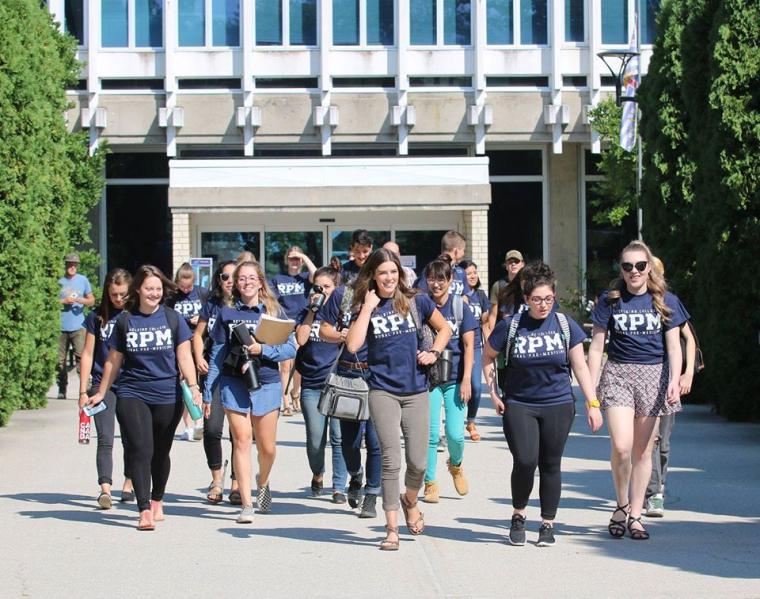- Managing your Practice
-
- Your Benefits
-

Introducing the ultimate Club MD experience
From work to play, and everything in between, we provide you with access to hundreds of deals from recognizable, best-in-class brands, elevating every facet of your life – from practice supports to entertainment, restaurants, electronics, travel, health and wellness, and more. Your Club MD membership ensures that these deals are exclusive to you, eliminating the need to search or negotiate.
Welcome to the ultimate Club MD experience. Your membership, your choices, your journey.
-
- Advocacy & Policy
-
- Collaboration
- News & Events
-

Stay Informed
Stay up to date with important information that impacts the profession and your practice. Doctors of BC provides a range of newsletters that target areas of interest to you.
Subscribe to the President's Letter
Subscribe to Newsletters
-
- About Us
-

Rural undergraduate program launchpad for health professionals
April 22, 2024
JCCs: Collaboration in Action
A Rural Pre-Medicine program started in the Kootenays 10 years ago to bring more doctors to rural communities is proving successful as a launching pad for careers in professional health.
Takaia Larsen and Jonathan Vanderhoek, RPM Program Coordinators at Selkirk College in Castlegar, say the partnership between the Joint Standing Committee on Rural Issues and Selkirk College in 2014 has been effective in improving rural recruitment and retention. The JSC funded the program.
Seventeen former students in the RPM Program have entered medical schools, with nine of those accepted into Canadian medical residency programs. Six of those are training at rural sites, including three who have returned to the UBC Kootenay Boundary site for Family Medicine.
“Having a pre-professional health science program available in a place like Castlegar and designing it with supports specifically tailored to students from rural, remote, and Indigenous communities, creates a pathway that will ultimately support the health care of people in rural B.C.,” Vanderhoek says.
Larsen and Vanderhoek will provide a presentation on the Rural Pre-Medicine program at the Joint Collaborative Committee Pre-Forum on Tuesday, April 23, 2024, at the Hyatt Regency in Vancouver.
Physicians and health care providers throughout B.C. are invited to attend the one-day event, which showcases projects that include quality improvement (QI) work, team-based care, and innovative ideas to address health care challenges and gaps. This year’s theme explores Together We Thrive: Improving Together.

While many graduates do pursue medicine, the program is also producing allied health professionals such as pharmacists, optometrists, and occupational and physical therapists – with many also choosing to train and practice in rural, remote, Northern, and Indigenous communities.
“I didn’t anticipate how fulfilling it is to expand our students’ horizons to a variety of careers that are available in health that can really bolster what we need in our communities,” Larsen says. “Many students enter the program at 17 years old thinking medicine, but along the way they find interests and opportunities that move them to becoming really capable valued health care professionals on a variety of career paths.”
The three-year program pairs an academic curriculum in the health sciences with strategic non-academic support, such as bringing in local health care professionals and pairing students with online mentors. Students also have an opportunity to mentor high school students and receive help in volunteering in the community, preparing for interviews, studying for the MCAT, and navigating the admission process.
Vanderhoek says by training people who have an affinity or background for rural life, there is a higher likelihood they will pursue careers will pursue careers in rural, remote, Northern and Indigenous communities. He notes not every student wants to go to a bigger site, which can be overwhelming and costly.
“Creating access to health sciences locally actually gets them onto the path beginning a journey that they might otherwise not start,” he says.
Larsen and Vanderhoek are committed to the vision behind the RPM Program and emphasize that embedding a program like this early on in rural students’ education is crucial in helping them build positive experiences and understand what their professional life could be like in a small place, something often lost if they go immediately to big centres.
“One of the things students learn here is the reliance on interprofessional collaboration in small communities and how closely tied our healthcare professionals and those working in the social service realm have to lean on each other in order to fill the gaps in underserved communities,” Larsen says.
The program coordinators speak with pride about seeing their alumni working as doctors and allied health professionals in their local communities today. “Those moments definitely make 10 years pay off,” Larsen says.
The program is continually evolving. Larsen and Vanderhoek say they have recently tweaked the curriculum based on student feedback and are always seeking university transfer partners for students seeking to complete a Bachelor of Science or Health Science degree. They would like to increase opportunities for scholarships and bursaries and hold a summer-based internship or place-based learning.
At the same time, they are in discussions with other institutions looking to model the program.
“I really think there is a strength and increased educational attainment that comes with people being able to maintain ties to their home community and region. With this in view, we see a fit for this type of program in each of the major regions of the province.” Vanderhoek says. “We’re really excited about others’ interest in developing programs modelled off of RPM.”




